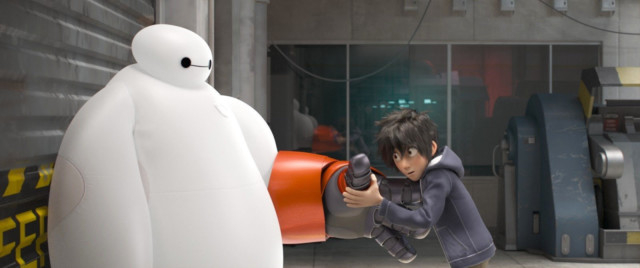
The gory Nobi (Fires of the Plain) left Ali Al Jabri, Abu Dhabi Film Festival (ADFF) director, and Teresa Cavina, director of programming, perplexed. Is it too violent to show, or is Japanese director Shinya Tsukamoto’s unflinching vision a must-see for the ADFF audience?
In the end, the film — a remake of a 1959 movie by the same name, which chronicles the alarming experiences of Japanese soldiers lost on a Filipino island during WWII — was selected for its anti-war message.
“What [the director] wants all of us to think of is that war is not the bloodless, special effects-charged thing that we see in the news. War is people, and people don’t die easily. They lose blood, they cry,” said Cavina. “[The film] was not violent for the sake of it, it was delivering a message that we think is so important now.”
Now in its eighth edition, ADFF will showcase many a movie tackling the same recurring, turbulent and oft uncomfortable theme: war and all its destructive manifestations around the world.
Memories on Stone by Shawkat Amin Korki, for example, tells the story of the genocide of Iraqi Kurds, while Timbuktu by Abderrahmane Sissako takes a look at the reality of jihadists and the ruthless rule of occupiers. Camp X-Ray by Peter Sattler follows the story of one female soldier (Kristen Stewart) as she becomes a guard at Guantanamo and develops an unlikely bond with a Muslim detainee, while Theeb by Naji Abu Nowar tells the story of a young Bedouin boy thrust into the perilous world of the Arabian Desert during World War I.
Tough subject matter
Despite the tough subject matter common amongst indie films, Cavina doesn’t subscribe to the notion that festivals should exclusively showcase art house movies, the ‘film festival darlings’, or that, subsequently, commercial efforts should be shunned at all costs.
“For us, there are only good films,” she said. “There are films that are worth [watching], because they are different, they are original — they are original ideas and have engrossing stories to tell. There are boring films, because we’ve seen and heard the same story a hundred times, the formula is always the same.”
Certainly, the opening and closing night film choices deliver one of the loudest messages of the 10-day festival, and that is a message of diversity and overcoming loss.
On October 23 (Thursday), ADFF will break ground by opening with an Emirati film for the first time, in the form of Ali F. Mostafa’s road trip flick, From A to B. And on November 1, the festival will close out with an equally interesting choice in the form of Disney animation, Big Hero 6.
“I think that in our festival, there is From A to B, there is Big Hero 6, and there’s everything in between — all degrees of popularity, all degrees of audience friendliness,” said Cavina.
Mostafa’s film follows a group of friends as they embark on a road trip in tribute to a friend who has died.
Emirati film
“It’s not about: ‘Why now, why not before?’,” said Al Jabri of the choice to open with an Emirati film. “On the contrary, if there had been an Emirati film that was good and had high artistic value, why wouldn’t we open the festival with it? There’s no doubt we’d open with it.”
Festival closer Big Hero 6 is another story of losing a loved one. Setting itself apart from other animated films, the film is inspired by a group of Marvel Comics superheroes by the same name, and it will be the first Disney film to feature any Marvel characters. On the opening day of ADFF, Big Hero 6 will premiere for the first time at Tokyo International Film Festival, making the UAE its second stop.
“The story has such a big heart, because it’s a story about a young man who lost his brother — and this is the story about rescuing the world and humanity, of course,” said Cavina.












